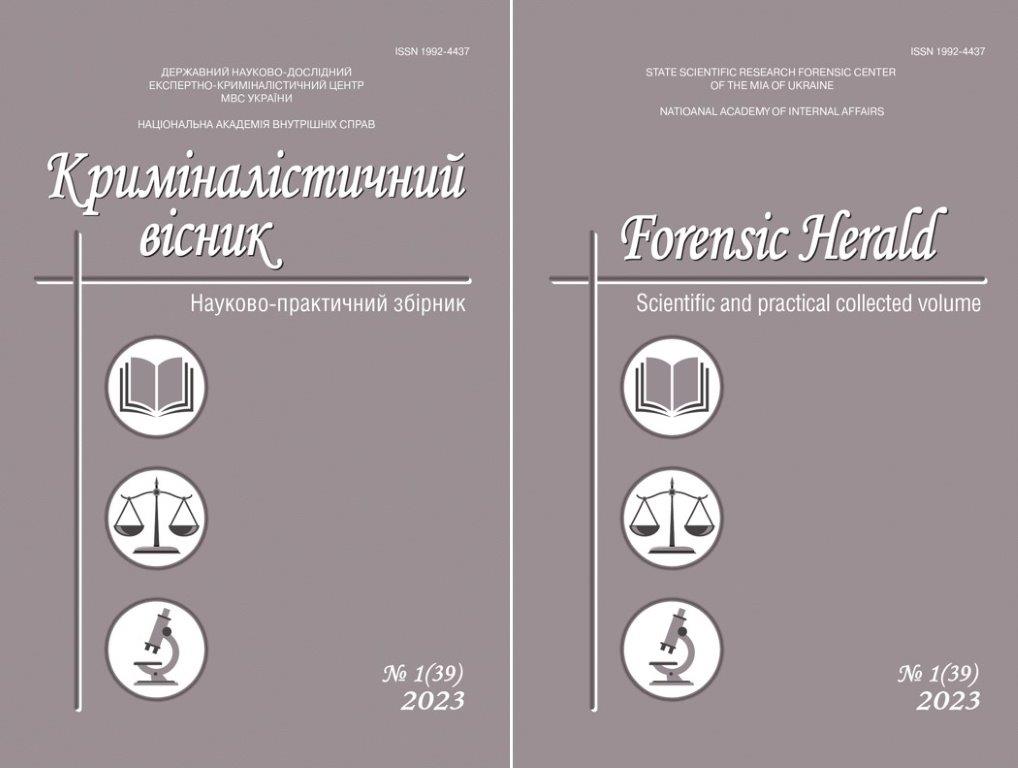ДІЇ СЛІДЧОГО ПІД ЧАС ВИЯВЛЕННЯ НА МІСЦІ ПОДІЇ МОБІЛЬНИХ ТЕРМІНАЛІВ (СТІЛЬНИКОВИХ РАДІОТЕЛЕФОНІВ)
DOI:
https://doi.org/10.37025/1992-4437/2023-39-1-52Ключові слова:
розслідування кримінального правопорушення, комп’ютерні дані, протокол, мобільний термінал, стільниковий радіотелефон, оперативно-технічний підрозділ, спеціаліст, спеціальні знанняАнотація
Мета статті полягає у висвітленні теоретико-прикладних підходів
до правового забезпечення дій слідчих під час розслідування
кримінальних правопорушень з отримання інформації з мобільних
терміналів (стільникових радіотелефонів), виявлених на місці події,
за допомогою технічних можливостей апаратно-програмного
комплексу Cellebrite UFED. Методологія. З огляду на специфіку
об’єкта та предмета дослідження обрано методологічний
інструментарій. Методологічну основу становить діалектичний
підхід до аналізу проблематики документування та фіксування
на місці події доказів, зважаючи на можливості апаратно-програмного
комплексу Cellebrite UFED. Під час дослідження використано систему
методів наукового пізнання: формальної логіки (абстрагування,
логіки, індукції, дедукції, синтез) – для з’ясування змісту розглядуваних
питань; теоретичний – у процесі дослідження наукової та навчально-
методичної літератури; моделювання – для розроблення
й упровадження в практику послідовності дій слідчих під час
розслідування кримінальних правопорушень. Наукова новизна.
Запропоновано послідовність дій слідчого, якщо на місці події
виявлено мобільний термінал (стільниковий радіотелефон),
і порядок вилучення інформації (комп’ютерних даних) з
цього пристрою за допомогою технічних можливостей
апаратно-програмного комплексу Cellebrite UFED.
Висновки. Розглянуто дії слідчого, коли на місці події виявлений
мобільний термінал (стільниковий радіотелефон), що зумовлює
необхідність використання спеціальних знань. Профіль
і кваліфікація фахівця, якого потрібно залучити до огляду
мобільного термінала (стільникового радіотелефона), визначається
залежно від мети і завдань слідчої (розшукової) дії, зважаючи
на встановлені первинні дані про характер кримінального
правопорушення. Запропоновано процесуальний порядок
отримання інформації (комп’ютерних даних) із мобільного термінала
(стільникового радіотелефона), що передбачає створення «образу»
/ електронного звіту наявної інформації, який записують
на цифровий носій у вигляді файлу, закріплюють електронною
міткою у вигляді контрольної суми. Надані науково-методичні
рекомендації у процесі викладення основного матеріалу можуть
становити методологічне підґрунтя ефективного виявлення
та розслідування кримінальних правопорушень зазначеної
спрямованості, зважаючи на те, що в реаліях сьогодення
практики, а також наукова спільнота плідно працюють над
новими програмними рішеннями, розробляють інноваційні
методології проведення окремих криміналістичних досліджень,
започатковують новітні технології.



